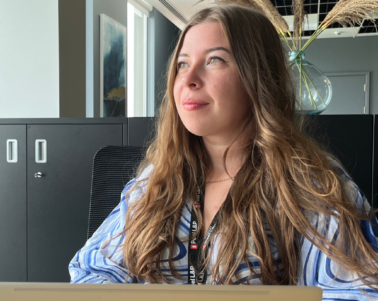
Alina Gorokhova – Community Co-ordinator at Arrive Blue
“Being Ukranian is my superpower”
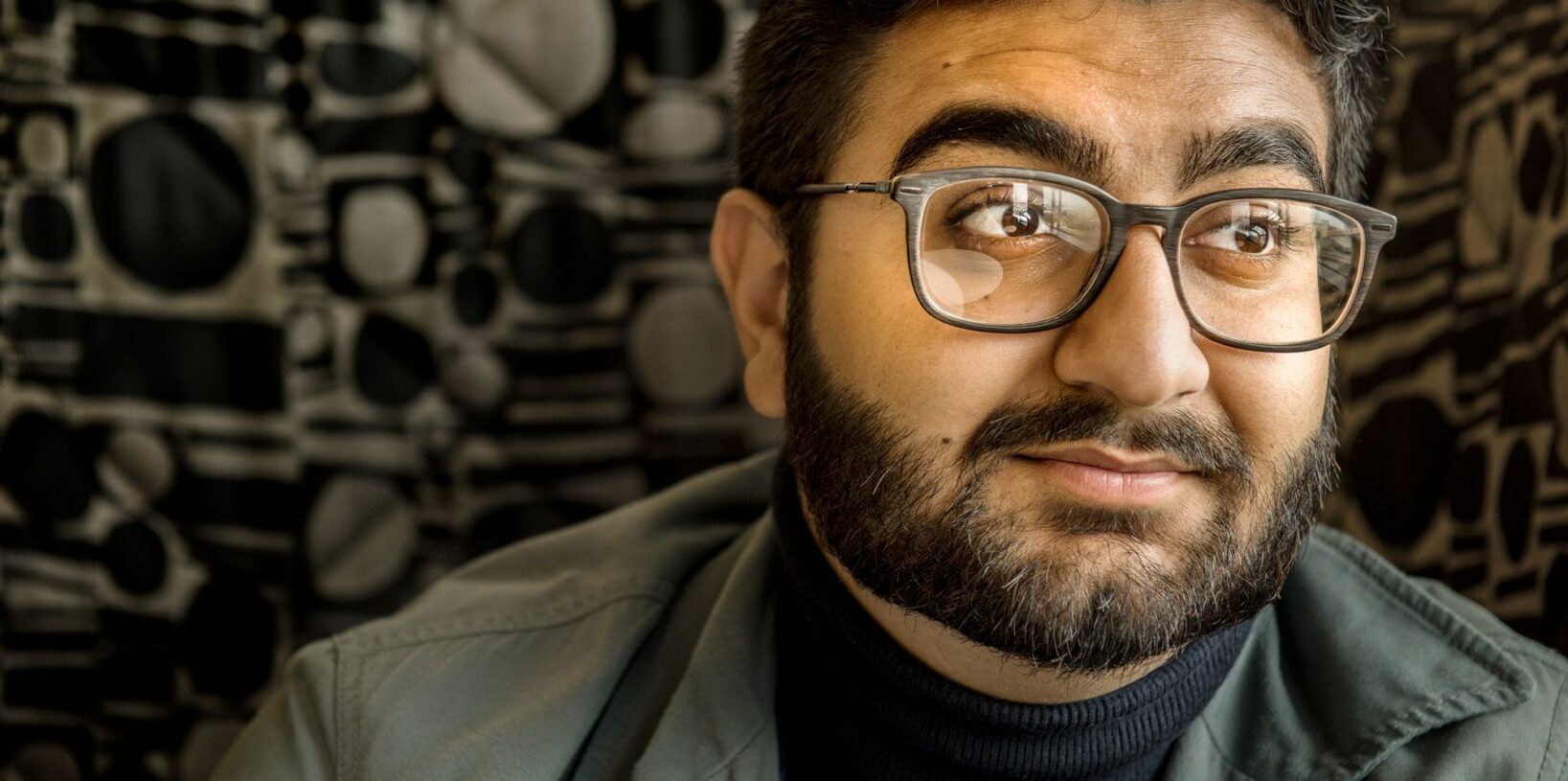
Although the piazza, which sits grandly in front of the ITV and BBC buildings, isn’t paved with gold, those walking across it, towards the glass doors that allow access to the magic kingdom of broadcasting, must sometimes feel that their destiny lies beneath each footstep taken. It could seem as if the giant surrounding satellite dishes are there to capture talent as well as radio signals.
On a pale morning, Inzy Rashid walks over the square towards me, growing ever taller as he gets closer, his welcoming smile warming the air around him. As he comes to sit beside me, restless and phone in hand, he cranes his neck back, seeking the top of the tower in which he now works.
He’s just 22 years old, but already has awards to polish and put on his mum and dad’s mantlepiece in their Warrington home.
“I went to the University of Salford here, and I’ve got so many memories. It felt like the only place to be if you wanted a career in broadcasting. Many of the lecturers still work at the BBC, and so it felt like there was no-one better to teach you. I was driven. I found energy from somewhere and so just kept putting my hand up for work experience. So far it seems to be paying off.”
I watch him as he talks, content to be with his confidence, slightly envious of his youth and a life still to be lived. I ask him if his parents had been to see where he worked?
“Yes, they have. In fact my dad loved it so much he’s bought one of the flats being built just behind us. And my mum loves the restaurants. At first they were, I suppose typically for an Asian family, suggesting that I became a lawyer, or an engineer like my dad. However, they are very open minded about what I do with my life, and so when I said I wanted to become a journalist they were very supportive.”
“My mum is forever asking me when I’m on the radio or TV, and she’s joined loads of social media sites so she can comment on the work I do. My dad is pleased too. When we were kids he used to say we could only stay up after 9 o’clock if we watched the news. I loved the news, so it wasn’t just a chance to stay up late. I loved seeing people like Michelle Hussain and George Alaghia reporting from locations around the world, they were real role models for me.”
We start to say our goodbyes, and stand to go our separate ways.
“Things can’t stay constant,” he says, “People need change. As a British Asian, from a Pakistani background, it’s important that I bring a view too, so that the news isn’t just white and British. We live in a multi-cultural society and the news needs to reflect that.”
It’s too early in the day for the nearby architecture to become illuminated. People are just starting to arrive, and they walk with that stooped tension that betrays a sense of challenge in their hearts . But later, those making their way to the bars and trams after hours of work, will be bathed in the wonder of many colours.
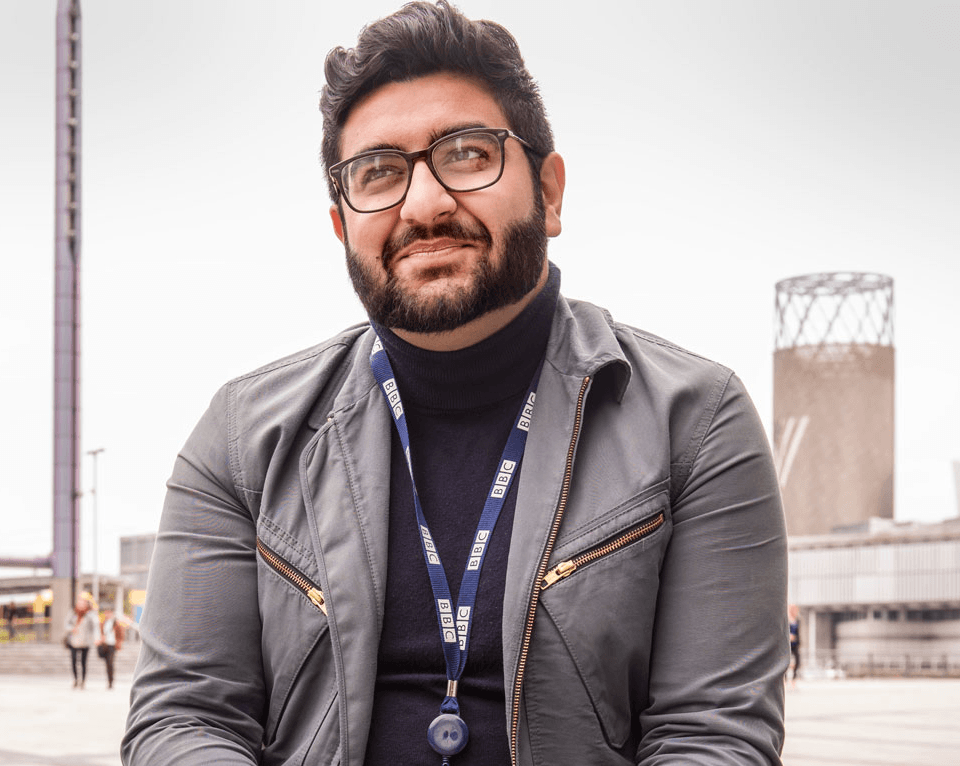
Words and Photography Simon Buckley

“Being Ukranian is my superpower”
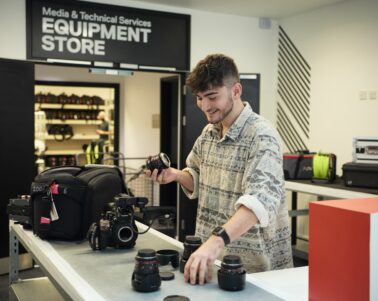
“It feels like a community; like I’m part of this media scene.”
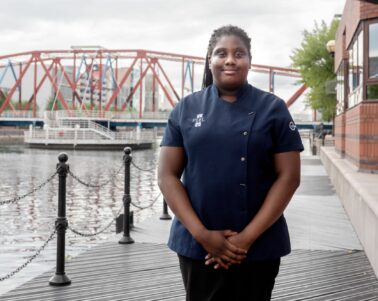
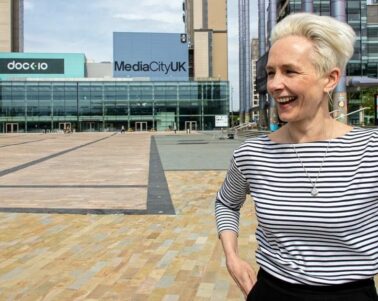
” If there’s anywhere we can do this and do it well it’s MediaCity because of the amazing, creative people who work within it, making wonderful things happen every day.”